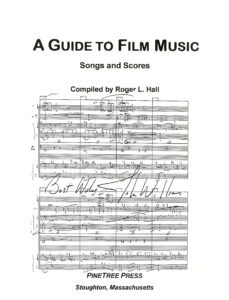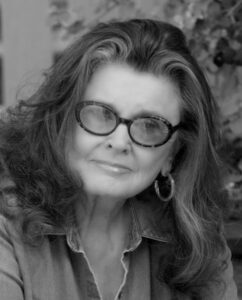
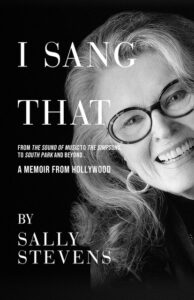
Roger Hall, FMR:
Sally, I appreciate you taking the time to discuss your many years as a session singer as you wrote about in your fascinating book about those years.
I begin by asking – how did get your first singing assignment in HOW THE WEST WAS WON in 1962?
Sally Stevens:
I sang on the score of HOW THE WEST WAS WON when I was twenty years old, I had toured during with Ray Conniff so was getting to know the “session singer” community. I think the choral contractor just needed an extra name or two in the Soprano section and I was recommended or referred.
Roger Hall:
Can you mention briefly one or two of your favorite early singing experiences in films?
Sally Stevens:
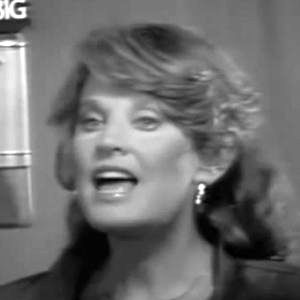
I loved doing the kind of sexy, breathy vocals in the underscores of DIRTY HARRY, KLUTE, etc They were solo cues, and my sound just seemed to be the sound of choice at that time so I got to work with Lalo Schifrin on several solo scores, and with Michael Small on the KLUTE score.
Roger Hall:
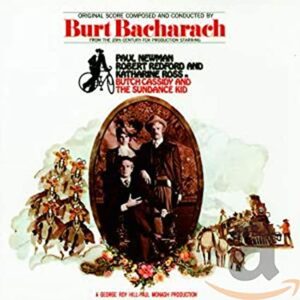
At the beginning of your book, composer Burt Bacharach said the following about your singing in his Oscar-winning film:
While I was scoring BUTCH CASSIDY AND THE SUN DANCE KID, Sally was vital in helping me achieve the vision of how I wanted the score to sound, and I couldn’t have recorded “South American Getaway” without her. My journey with Sally Stevens. I wouldn’t have missed it for the world. Hats off to you, Sally, you’ve done it all!
That’s high praise indeed from such a popular composer.
Will you tell how you got to sing the solo in that wonderful theme in his Oscar-winning film score?
Sally Stevens:
For the “South American Getaway” vocals, I had been hired by Ron Hicklin, with whom I did a lot of work during the sixties and seventies, mostly on commercials and sound recordings. Ron had been hired to book the singers for Burt. and the solo was kind of a toss-up between me and another wonderful singer, Sue Allen Brown. We both “auditioned” and Burt liked my sound, so he sort of let me lead the way. But he rehearsed us very carefully, as he always did when recording his writings. That was the only solo vocal in the score, except for “Raindrops Keep Fallin’ On My Head.”
Roger Hall:
Were there any other films that you did much solo singing that you wish to mention?
Sally Stevens:
The lullaby from SECRET OF NIMH within the film, I sang it as the voice of the Mama Rat, but for the Italian release version, they used my end title solo instead of Paul Williams’ version,, which was the end title used in most of the releases. There was another early film – 1983 – a James Horner score that was quite unusual for James – it was basically just myself and the wonderful guitar player Tommy Tedesco – who was part of the Wrecking Crew and could just play anything and everything – classical, latin, country,, jazz — the score was very sparce throughout the movie, mostly gentle underscore guitar, but I did the opening music for the film, a very haunting, high solo soprano obligato – then Tommy joined in, and at the end of the film for the end credits we did the underscore together.
Only a few weeks ago I was able to find it on Youtube. THE STONE BOY was the title of the film, and I was told that it had never been released. But I learned that it was released in NYC theaters, and pulled out after about a week. It was a painful subject, a little 12-year old kid accidentally shoots his older brother with a hunting rifle, and the drama goes through years of the family’s lives.
Roger Hall:
You worked with many other film composers over the years. Will you name a few film assignments that were especially challenging and tell why?
Sally Stevens:
My first project with John Williams was a wonderful, but very challenging project. I was referred to him by Sandy De Crescent, his musician’s contractor, because I had worked with Hans Zimmer on POWER OF ONE, a very authentically African musical score. The film for John was AMISTAD, Steven Spielberg’s film about a slave ship crossing from West Africa, and those brought to America to be sold as slaves eventually were able to go to court and win the right to return to their homeland. We did about 5 days of recording with a very large adult choir – 52 voices, and several sessions with slightly smaller women’s, and also men’s choir. We also did several days with a very large children’s choir, and we needed to rehearse the kids the day before the session so they could learn their parts, and also the pronunciation of the African language.
We did a Sound Effects choir for Alan Silvestri which was fun, but challenging for one of his scores. I had worked with Alan on numerous scores – he and Danny Elfman were the first composers I got to contract choirs for. It was for POLAR EXPRESS. Another couple of films I loved working on with Alan were THE MEXICAN, and FORREST GUMP.
Roger Hall:
Can you describe one or two sessions that you especially enjoyed working on and anything about the film composers too?
Sally Stevens:
With Jerry Goldsmith, we did some choral cues for RUDY, and Rudy himself – who the film was about – was there on the scoring stage with us. Also with Jerry, we did some small group vocals for LOONEY TUNES… and I got to perform as the Theremin, for some cues! I just duplicated the Theremin sound.
I dearly loved working with Danny Elfman – I contracted the voices for numerous of his early scores – BEETLEJUICE, EDWARD SCISSORHANDS, several of the BATMAN films. His vocal charts for SCISSORHANDS are among my most favorite vocals over the years. Light, straight-toned 20-voice women’s choir.
Roger Hall: –
In your book, you mentioned writing some lyrics and producing an album and you still have some of the CDs in your house. Were any of your lyrics included in a film?
Sally Stevens:
I have written lyrics for a number of films, but only the lyrics. My first opportunity to write lyrics for a film was for ON ANY SUNDAY, for composer Dominic Frontiere. We also wrote cues for HAMMERSMITH IS OUT, starring Elizabeth Taylor and Richard Burton. It was not a very successful film though. I wrote lyrics for Dave Grusin for a song in ABSENCE OF MALICE, and it later was recorded by James Taylor in his first Christmas CD. The song was “Who Comes This Night?”. And in the seventies – I think in 1972 or ‘73 – I wrote a lyric for an Italian Marcello Mastroiani film, PERMETTE ME. It was the main title, and they wanted an English lyric. I also wrote lyrics for Don Ellis, for the film RUBY.
Roger Hall:
How did you approach any film themes which didn’t have any words just syllables or “vocal sound effects” (as my wife calls them)?
Sally Stevens:
That was basically what all those early solo vocal cues were – for DIRTY HARRY, for KLUTE, etc. – just a breathy “ah” sound. That was the same sound for THE STONE BOY, James Horner’s cue, but it was “ahs” and “oohs” in a very high soprano register mostly.
Roger Hall:
Were there any singing assignments that gave you a lot of grief in learning the music?
Sally Stevens:
As “session singers” we traditionally must be excellent at sight reading music. So there was never an issue of “learning” the music, we read it and focus on getting the right sound, the sound the composer is going for -.usually at the most there might be 2 or 3 “takes” on a vocal cue, more if it is lengthy, and a bit more complicated. But we read it on the spot, there is no “learning the music’ ahead of time.
Roger Hall:
Can you give any final comments for any films you worked on and do you think that session singers should be listed in the end credits?
Sally Stevens:
I ABSOLUTELY believe the singers should be listed in the film credits, and that is only recently beginning to happen. For all those early solos I did, I never was given screen credit. It just wasn’t done – though the “porta- potty” deliverers managed to get credit!
James Newton Howard’s scores were magical – his PETER PAN vocals were very special, as were The LAST AIR BENDER, CHARLIE WILSON’S WAR.
Marc Shaiman’s vocals have always been fun – SOUTH PARK film score was super fun, and Marc called to warn me that the language might be offensive to some, so to be cautious about who I included in the choir. The vocals over the years for THE SIMPSONS, for Alf Clausen, were always fun and his music was such an important part of the identity of the series. The Main Title was written by Danny Elfman, and sung by Danny, myself, and my daughter Susie Stevens who had been doing a lot of film vocals.
Another one of the films I worked on with John Williams was MUNICH, and again, he needed a very special, emotional sound for the solos in that score. I submitted a demo from Lisbeth Scott, a wonderful singer and composer here in town, John liked her voice, she was perfect for that project. Steve Spielberg himself was in tears as Lisbeth sang her vocals on the Sony scoring stage with John.
For AMISTAD there was one cue John needed a soloist for but it had to be emotionally perfect, ethnically authentic, and have a classical approach to the music.I auditioned singers here in town, I even auditioned some of the young singers at Julliard when I was in NYC for Union Trustee meetings – nothing was quite right, and then someone told me about a new Opera director at the San Francisco opera. I spoke to him, and he referred me to a wonderful young woman, Pamela Dillard, who was African American, Classical soloist and at that time performing in concert on tour. I reached her in Birmigham Alabama, and I just felt from talking to her on the phone that this was the right voice. She sent a recording, John loved her, and ended up writing two more solo cues for her.
We’ve done some very fun vocals for FAMILY GUY and AMERICAN DAD, for composer Walter Murphy and producer/creator Seth MacFarlane. Seth is one of the BEST ever people I’ve had the opportunity to work with over the years. He is such a passionate supporter of “live” musician scoring, and has kept his recordings here in town, and used full orchestras instead of mixing a few soloists up with orchestral Samples
I would say generally speaking that any scores of James Horner, James Newton Howard, John Williams, Alan Silvestri, Elmer Bernstein – so many of their scores included voices, and their music is so outstanding and beautiful. Also, of course, Jerry Goldsmith, Danny Elfman…more recently we’ve done some wonderful vocals for Tyler Bates, who was wonderful to work with. I did some vocals for DEADPOOL 2, and a couple of his earlier films.
Roger Hall:
Thank you, Sally, for your telling our readers about your great work as a session singer which you have done for so many productive years. Your book will tell more about your many years as a session singer for films, TV, and live shows too.
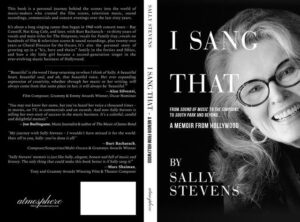
Her book, I SANG THAT: A Memoir From Hollywood (Atmosphere Press, 2022) —
Please help support Film Music Review:
To order your copy of the 8th edition of this book, available exclusively as a PDF — click here

